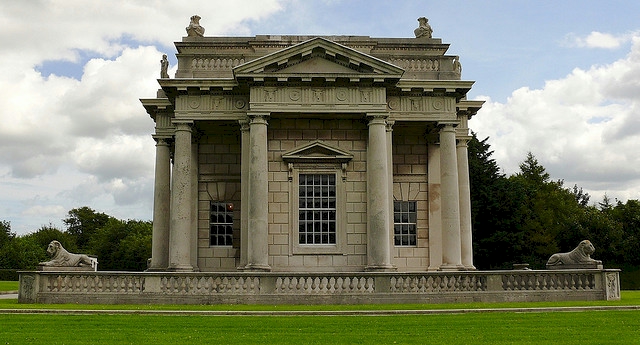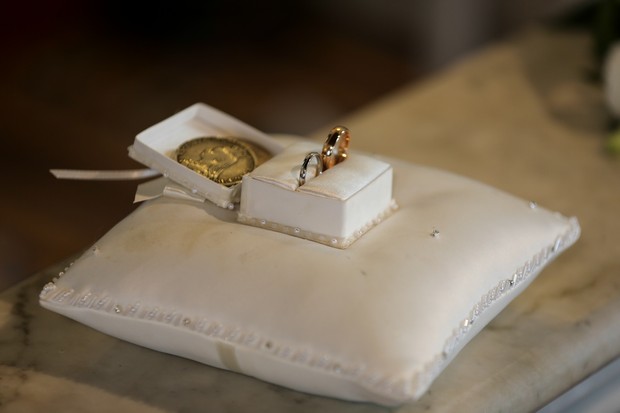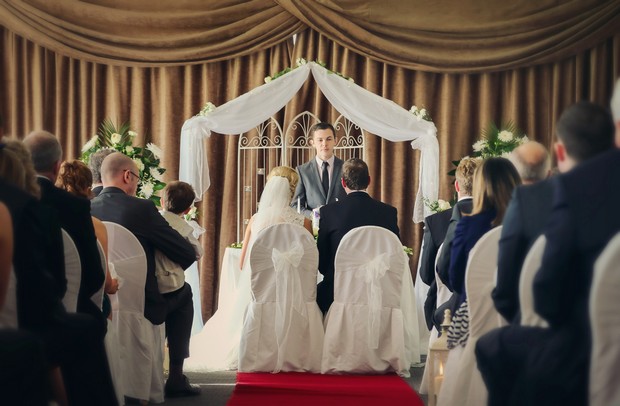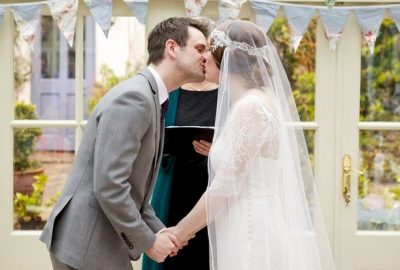Image by McMahon Studios
For those of you who are navigating the civil ceremony requirements at the moment, help is at hand! We’ve put together some useful information to keep you on track…
Arranging Your Civil Ceremony
1. The first thing to do is figure out which county you want to get married in and when. There are a few things to keep in mind, firstly that you can only get married Monday to Friday and secondly, there are restrictions on the type of venues you can get married in (see below). There are also lengthy queues, so if you had hoped to get married on a Friday, this may not be an option depending on the time frame and where you want to get married.
2. Once you have decided this, you must apply to get married by civil ceremony in a Registry Office or other approved place – the first thing to do is approach the Registrar of Marriages for the district in which you intend to marry for information on what is involved. They will be able to provide you with all the information you need. Click here to see a list of Registrar Offices.
3. As well as arranging your civil marriage ceremony there is also a legal requirement to give at least three months notification to the state of your intention to marry. This does not have to be with the same Registrar.
For example, if you are from Dublin and are getting married in Dublin, get in touch with the Registrar in Dublin who will be able to arrange your Registry Office or venue approval, as well as deal with your state notification. However, if you’re from Dublin and hope to get married in Clare, you will need to get in touch with the Registrar in Clare regarding the ceremony and venue side of things, but you will be able to give your state notification in Dublin.
For more information on state notification, see below.
Again, you can find a list of Registrars offices here and can book an appointment at crsappointments.ie.
The Day
Civil ceremonies can only take place from Monday to Friday (bank holidays and weekends are a no-no). There are specific times for off-site venues so make sure to enquire about this too.
 Image of Casino in Marino via Do Chara
Image of Casino in Marino via Do Chara
The Venue
You can get married in a Registry Office or a venue of your choice, providing it ticks certain boxes. It must be a licensed venue and be approved by a Registrar so contact the Registrar in that particular district/county to have it approved. They may have to inspect the venue so give them lots of notice so that it is approved in time for your wedding. Word of warning, there are big queues for civil ceremonies, so while you must apply least three months before your wedding, it is best to set the wheels in motion early to ensure you secure the date you want.
Not every venue will be suitable for a civil ceremony. Below is a list guidelines for venues – they can also be found on the General Registrar’s website:
- The venue must be seemly and dignified
- The ceremony room must have adequate capacity
- It must have unrestricted public access without charge and meet health and safety requirements
- It must have adequate public liability insurance cover
- It must be accessible to all including those with disabilities
- The venue mustn’t have any connection with any religion or religious practice
- It must be a fixed structure
- This means the likes of a tent, marquee, private dwelling, or anywhere outdoors such as a forest, beach or other temporary structure will not be allowed
Good news – talks are under way between the Office of Public Works and the HSE about opening up some of Ireland’s heritage sites for wedding ceremonies. Weddings have already taken place in the stunning Casino in Marino and Castletown House in Kildare and other historic buildings and sites such as Desmond Hall and the Botanic Gardens may eventually be available for weddings! Watch this space.
Notification to the State of Your Intention to Marry
As mentioned above, every person getting married in Ireland regardless of the ceremony type must give the state three months notification of their intention to marry. This can be done by booking an appointment with your local registrar office, at least three months before your wedding date. You can find a list of Registrars offices here and can book an appointment at crsappointments.ie. For your appointment with the Registrar, you will need the following documents:
- Photo ID, which must be in date: A Passport, or Refugee/Asylum card issued by the Department of Justice and Law Reform, or National ID card (from those EU countries where they are an accepted form of travel document) plus a colour photocopy (for both parties)
- Original Long Birth Cert, plus a colour photocopy (for both parties)
- Name & Date of Birth of both witnesses (must be 18 years of age or over on the date of ceremony)
- Proof of Address in the form of a utility bill (for both parties)
- PPS Number (for both parties)
You will also have to provide the following information:
- Whether it will be a civil, secular or religious ceremony
- The intended date and location of the marriage
- Name of Registered Solemniser (check national list here)
- You will be required to pay a notification fee of €200. Additional charges also apply for civil ceremonies.
- Original final divorce decree if either of you is divorced
- Death certificate and previous marriage certificate if either of you is widowed
Marriage Registration Form (MRF)
Once you provide all the relevant documents and answer a series of questions (which establish that you’re free to marry), the Registrar will issue you with a Marriage Registration Form (MRF – it is like a marriage license and gives authorisation for a couple to get married in Ireland). This must be given to the Registrar (person conducting your ceremony) before the ceremony. It must be signed by you both on the day of your wedding as well as your two witnesses and the Registrar. The Registrar must then register the marriage as soon as possible after the ceremony.
 Image by Nick O’ Keeffe
Image by Nick O’ Keeffe
Marriage Ceremony
The ceremony must be conducted or solemnised by a Registrar (in this case Civil Servant) – a list of all registered Solemnisers can be found here.
Two witnesses, both of which must be aged 18 or over must be present. During the ceremony, the following two declarations must be made by you and your partner:
- That you do not know of any impediment to the marriage
- That you accept each other as husband and wife
If you, your partner, or the two witnesses are not familiar with the language in which the ceremony is being conducted, an interpreter must be present. It is your responsibility to arrange this service.
Fee
There may be additional fees for civil ceremonies held in venues other than Registry Offices. The Registrar will advise you of what fees are due when you are giving your notification.
If you are unsure about any part of the process, talk to your registrar office who should be able to help you with any questions.
For more information see: http://www.civilregistrationservice.ie/ or www.citizensinformation.ie



